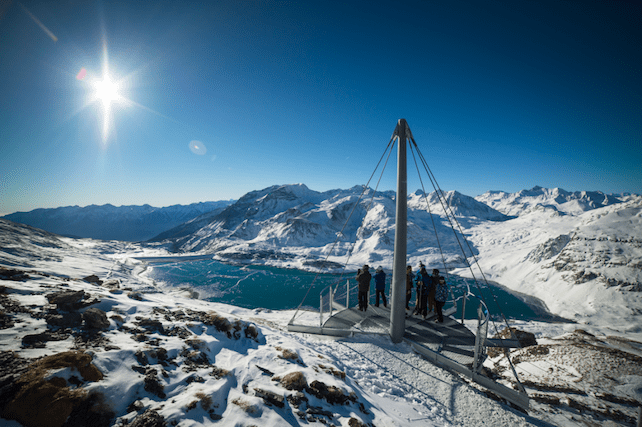
Perhaps you’ve never heard of Val Cenis? Or maybe you’re a bit muddled between Valmorel, Valmeinier, Valfrejus, Valberg and Vallorcine? Well, there’s no need to be – this place is a quiet little French backwater that has yet to be discovered by most international skiers and snowboarders.
It’s located in the Maurienne Valley, which for 75km runs almost parallel to the more familiar Tarentaise with Moutiers and Bourg-St-Maurice as its main towns. Val Cenis lies close to the Italian frontier, just 10km (as the mountain chuff flies) from Val d’Isere and has the same exceptional snow pattern, but there the comparison ends.
There are five good reasons to come here.
It’s cheap

In a typical mountain restaurant you’ll pay 9€ for spag bol, 8.50€ for a giant salad, 1.70€ for a cup of coffee and 3€ for a beer. In town you can expect to pay 10€ for a two-course meal at lunchtime. That’s roughly half the price of the equivalent in a well-known French resort.
It’s not expensive to stay here either. You’ll pay from from £127pp in a two-bedroom apartment at Les Balcons de Val Cenis for one week, including Eurotunnel.
The skiing is surprisingly good
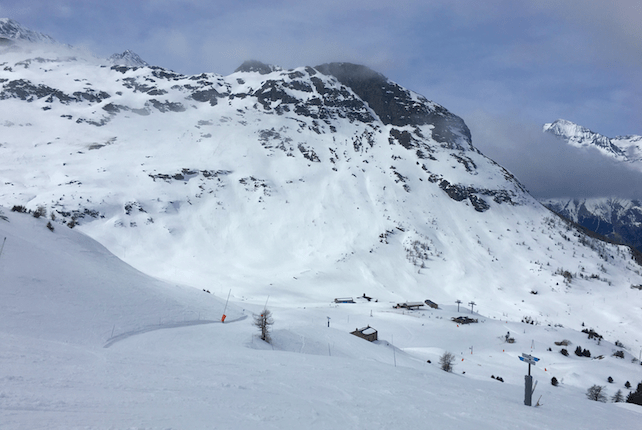
The lower part of the ski area is in many ways reminiscent of a North American resort, with intermediate pistes sheltered by trees that tend to hold their snow well. The upper part – rising to 2800m – provides glorious open skiing above the treeline. Even during peak hours the diversity of mountain access means that there is hardly ever a queue.
Then there’s the added bonus of the Eski-mo lift pass, which covers two days in Val Cenis and one day in each of Valfrejus, La Norma, Aussois and Bonneval (which also has an excellent restaurant – more about that later). The pass currently costs 189€ for 6 days whilst, in comparison, the ordinary Val Cenis lift pass costs 164€. Eski-mo pass holders have a free ski bus from Lanslebourg – main urban centre – to and from all the resorts on a different morning each week.
There is some excellent accommodation
This is almost like one of those villages you’d find in the middle of provincial France. Most of the visitors are French – I came across a few Germans and Italians, hardly any Brits at all. We stayed at Les Chalets de Flambeau, which is a collection of chalet-style buildings containing spacious modern apartments, a spa, and swimming-pool that seemed to be popular with families whilst I was there.
The building is located exactly half way between the more bustling centre of Lanslebourg and quieter Lanslevillard, which sounds like it might be annoyingly isolated. But the two main centres are a brisk 15-25 minute walk away and there’s a regular bus service. The enclave has its own small supermarket, bakery, ski shop and a restaurant, as well as a chair-lift linking into the ski area and a ski school meeting place outside.
If you’re looking for something even more luxurious there’s Hotel Saint Charles Restaurant & Spa, a new four-star hotel in Lanslebourg, with stylish rooms and suites, a restaurant, and a lovely spa with slate floors and walls and a slate swimming-pool.
You can eat really well
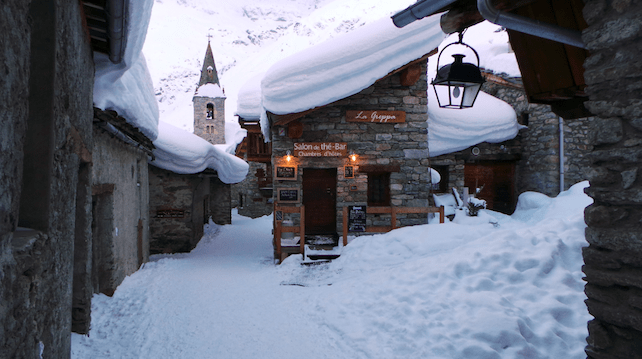
I’d recommend Bar des Rochers (at Lanslevillard base), La Fema (+33 479 05 90 98) self-service, and Le Relais du Col (+33 479 59 47 84). In the resort there’s l’Arcelle (+33 479 05 93 98) in the Lanslevillard sector of Val Cenis, and La Bambiche (+33 479 83 20 94) in the Lanslebourg end of town.
The star of the area – in fact my new favourite in the French Alps – is La Cabane (+33 479 05 34 60) in the hamlet of Bonneval. Owned and run by two sisters (one is the chef, the other the manageress), mushroom fondue is one of the popular dishes here, and the whole place has a lovely warm and cosy atmosphere.
By the way, Bonneval is 19km down the road at the far end of the valley and should not be missed. It’s an enchanting little place, which you are bound to fall completely in love with. Ancient wood and stone chalets line the tiny alleyways and there are no ugly concrete or modern structures anywhere. The skiing is worth a look, too – especially after a fresh snowfall when the off-piste is pretty sensational.
This ancient village somehow escaped the scorched earth policy of retreating Germans at the end of WW2. It’s linked to Val d’Isere over the Col de l’Iseran, the highest paved road in Europe – but only in summer. Plans to link the resorts by lift remain on the drawing board but, because of opposition by conservationists, are unlikely to be realised in the foreseeable future.
Fact Box
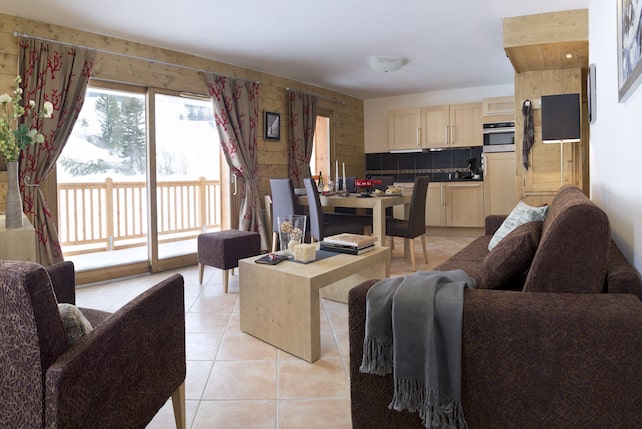
A week at Chalets de Flambeau costs from £230pp with Peak Retreats, including Eurotunnel crossings with FlexiPlus upgrades.

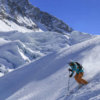
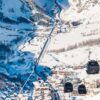

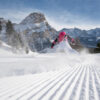
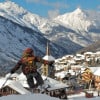
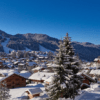

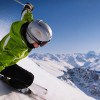
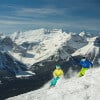
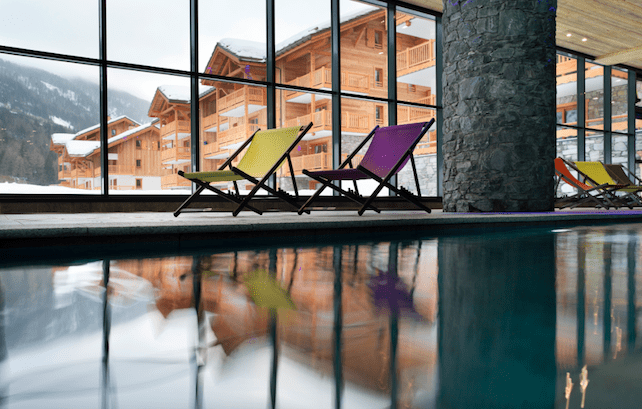
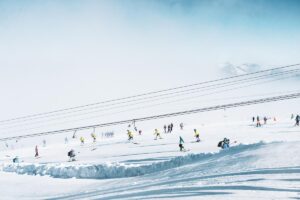
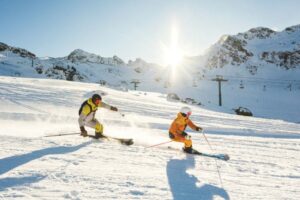
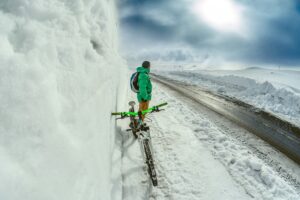
Add Comment